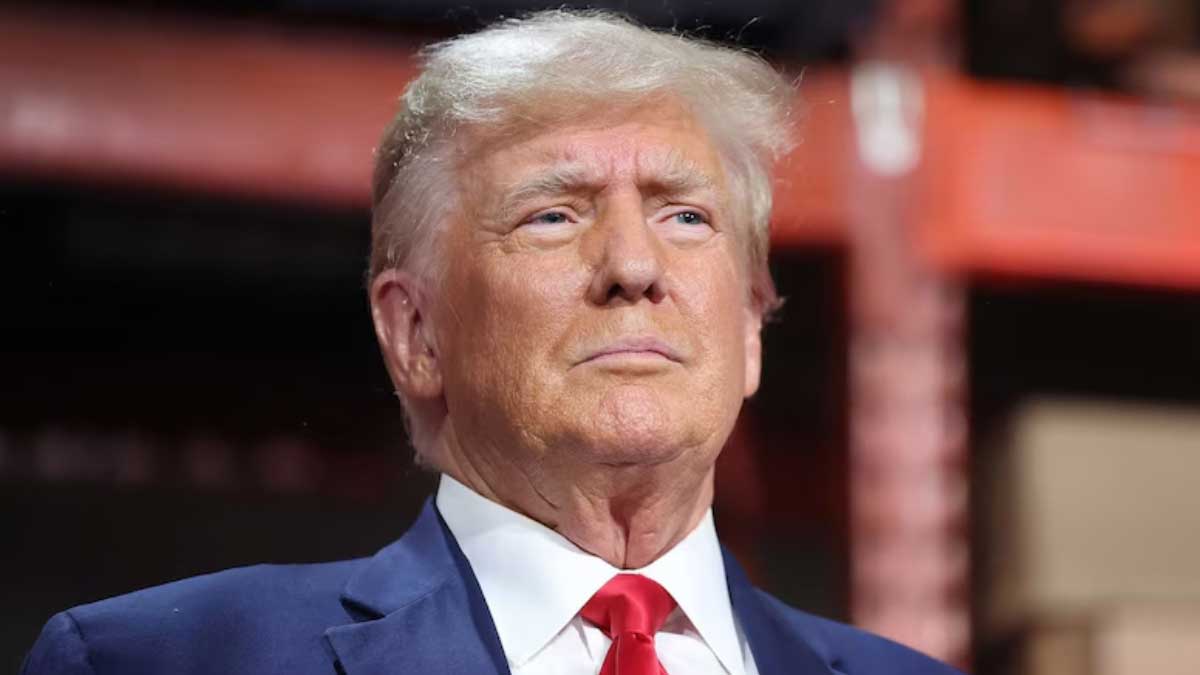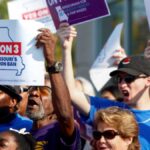- Home
- Billionaires
- Investing Newsletters
- 193CC 1000
- Article Layout 2
- Article Layout 3
- Article Layout 4
- Article Layout 5
- Article Layout 6
- Article Layout 7
- Article Layout 8
- Article Layout 9
- Article Layout 10
- Article Layout 11
- Article Layout 12
- Article Layout 13
- Article Layout 14
- Article Sidebar
- Post Format
- pages
- Archive Layouts
- Post Gallery
- Post Video Background
- Post Review
- Sponsored Post
- Leadership
- Business
- Money
- Small Business
- Innovation
- Shop
Recent Posts
Philadelphia Officials Reject Trump’s Voter Fraud Claims

Former President Donald Trump recently asserted that Philadelphia is plagued by “massive cheating” in its election process, a claim he shared on his social media platform, Truth Social. Trump’s accusation comes without substantiating evidence and has already been strongly refuted by Philadelphia officials, who accuse him of spreading disinformation that could erode public trust in the electoral process.
In his post, Trump declared there was “a lot of talk about massive CHEATING in Philadelphia,” adding to a series of unsubstantiated statements he and his allies have made in recent days about the integrity of voting in Pennsylvania. These claims are the latest in Trump’s ongoing narrative questioning the legitimacy of the electoral process, a theme he has emphasized throughout his public commentary since his 2020 presidential loss. However, officials in Philadelphia were quick to counter his accusations, underscoring the lack of evidence and reassuring the public that local election procedures are transparent and secure.
Philadelphia City Commissioner Seth Bluestein responded firmly, stating that there is “no truth” to Trump’s allegations. Bluestein, who oversees various aspects of Philadelphia’s election process, characterized Trump’s statement as disinformation and an attempt to stir doubt among voters. On social media, Bluestein further noted that his office has been in contact with the Republican National Committee and is addressing every report of voting irregularities to ensure that all Philadelphians can cast their votes safely and without interference. His statement reflects Philadelphia’s commitment to proactive oversight and cooperation with all parties, indicating that officials are open to any reports or concerns that may arise, even if they ultimately prove unfounded.
Philadelphia District Attorney Larry Krasner also weighed in on Trump’s claims, calling them factually groundless. Krasner, known for his outspoken stance on public integrity issues, directly challenged Trump to provide any tangible evidence supporting his assertions. In a public statement, Krasner invited Trump to back up his claims, emphasizing, “We want [the evidence]. Right now. We are not holding our breath.” Krasner’s comments reflect frustration among Philadelphia officials over what they see as repeated, unsubstantiated allegations designed to create fear and doubt rather than address real issues.
The comments from Bluestein and Krasner highlight a key tension in Philadelphia and across the nation: the need to protect the integrity of elections while combating misinformation that can destabilize public confidence in democratic institutions. Officials nationwide have expressed similar concerns about the impact of misleading claims, particularly as they relate to critical swing states like Pennsylvania, where narrow margins can determine the outcome of federal elections.
Trump’s latest assertions in Philadelphia are part of a broader narrative he has woven since his loss in the 2020 presidential election. Over the past three years, Trump has repeatedly cast doubt on the legitimacy of U.S. elections, particularly in states like Pennsylvania, where he lost by narrow margins. In 2020, Pennsylvania became a focal point of Trump’s legal efforts to overturn election results, with the former president filing multiple lawsuits alleging fraud and irregularities. Nearly all of these lawsuits were dismissed, often on procedural grounds or due to a lack of evidence.
This sustained rhetoric has led to concerns among election officials, who worry that Trump’s ongoing claims may have long-term effects on voter confidence. Pennsylvania Secretary of State Al Schmidt recently highlighted the potential damage of spreading unverified information. Schmidt told reporters that sharing social posts that contain “half-truths or even outright lies” harms democratic processes by creating unnecessary fear and skepticism among the public. According to Schmidt, a core aspect of representative democracy is trust in election systems, a trust that can be easily undermined by prominent figures like Trump promoting baseless claims.
Trump’s accusations have also impacted political dialogue in Pennsylvania, a state that holds significant electoral sway. As Trump and other Republican leaders continue to suggest that fraud is prevalent, state officials and local law enforcement agencies have intensified efforts to reassure voters that elections are secure. Krasner and Bluestein’s statements are part of this broader push to affirm the integrity of Pennsylvania’s voting systems, reminding the public that baseless claims will not go unchallenged.
Trump’s use of Truth Social to communicate his election concerns reflects a strategy he has used throughout his political career: leveraging social media to bypass traditional news channels and speak directly to his supporters. This approach has allowed him to amplify claims that may not hold up under media scrutiny. However, critics argue that Trump’s online statements often lack accountability, as his remarks go directly to his audience without immediate fact-checking or rebuttal from officials.
Trump’s recent Truth Social post is characteristic of his broader approach, in which he suggests wrongdoing without offering proof. According to experts on misinformation, this strategy is effective in shaping public opinion, as statements made by prominent figures tend to be believed by a segment of the population regardless of their accuracy. This phenomenon is particularly pronounced among Trump’s supporters, many of whom view his comments as truthful and are more inclined to question the legitimacy of electoral processes if they believe Trump has credible concerns.
The persistent dissemination of unverified election-related claims has led to a polarized political environment, with significant portions of the American electorate expressing doubt in electoral outcomes. According to recent surveys, a substantial percentage of Republican voters remain skeptical about the legitimacy of the 2020 election, influenced in part by Trump’s consistent messaging. The concern among election officials is that these beliefs could lead to decreased voter turnout or an increase in public unrest around election periods, both of which can undermine democratic participation.
Philadelphia’s swift response to Trump’s claims reflects an effort to counter misinformation as quickly as it arises. By addressing Trump’s statements directly and inviting him to provide evidence, Bluestein and Krasner are taking a proactive stance to protect the credibility of the electoral process. This approach aligns with broader efforts across Pennsylvania and other states to maintain transparency and provide voters with clear, accurate information.
Officials and analysts warn that misinformation has the potential to destabilize electoral integrity if left unchecked, creating an environment where voters are less likely to trust results, even if those results are legitimate. As the 2024 election cycle approaches, election officials nationwide are preparing for a challenging environment where misinformation could play a major role. In Pennsylvania and other battleground states, officials are working to build robust systems that can swiftly address any claims of impropriety, ensuring that voters have confidence in the process and feel secure in their ability to participate.
In response to Trump’s latest claim, Philadelphia officials have emphasized their commitment to upholding democratic principles, safeguarding election integrity, and encouraging all eligible citizens to vote. Bluestein and Krasner’s rebuttal serves as a reminder that election security remains a top priority for officials committed to transparency and accountability. As the 2024 election draws closer, Philadelphia’s efforts to counter misinformation may become a model for other cities aiming to protect their democratic processes amid an increasingly polarized political climate.
Recent Posts
Categories
- 193cc Digital Assets2
- 5G1
- Aerospace & Defense46
- AI37
- Arts3
- Banking & Insurance11
- Big Data3
- Billionaires449
- Boats & Planes1
- Business328
- Careers13
- Cars & Bikes76
- CEO Network1
- CFO Network17
- CHRO Network1
- CIO Network1
- Cloud10
- CMO Network18
- Commercial Real Estate7
- Consultant1
- Consumer Tech180
- CxO1
- Cybersecurity68
- Dining1
- Diversity, Equity & Inclusion4
- Education7
- Energy8
- Enterprise Tech29
- Events11
- Fintech1
- Food & Drink2
- Franchises1
- Freelance1
- Future Of Work2
- Games141
- GIG1
- Healthcare78
- Hollywood & Entertainment186
- Houses1
- Innovation42
- Investing2
- Investing Newsletters4
- Leadership65
- Lifestyle11
- Manufacturing1
- Markets20
- Media193
- Mobile phone1
- Money13
- Personal Finance2
- Policy567
- Real Estate1
- Research6
- Retail1
- Retirement1
- Small Business1
- SportsMoney33
- Style & Beauty1
- Success Income1
- Taxes2
- Travel10
- Uncategorized8
- Vices1
- Watches & Jewelry2
- world's billionaires418
Related Articles
Trump Moves $4B Stake in Truth Social Parent, Stock Drops 6%
Donald Trump recently transferred his 57% stake in Trump Media & Technology...
By 193cc Agency CouncilDecember 20, 2024House Rejects Trump-Backed Funding Bill, Shutdown Looms
The U.S. House of Representatives rejected a new government funding bill on...
By 193cc Agency CouncilDecember 20, 2024Trump Named Time’s Person of the Year for Second Time
On Thursday, Time magazine honored Donald Trump as its “Person of the...
By 193cc Agency CouncilDecember 12, 2024Meta Donates $1 Million to Trump’s Inaugural Fund
Meta, the parent company of Facebook and Instagram, has confirmed a $1...
By 193cc Agency CouncilDecember 12, 2024















Leave a comment